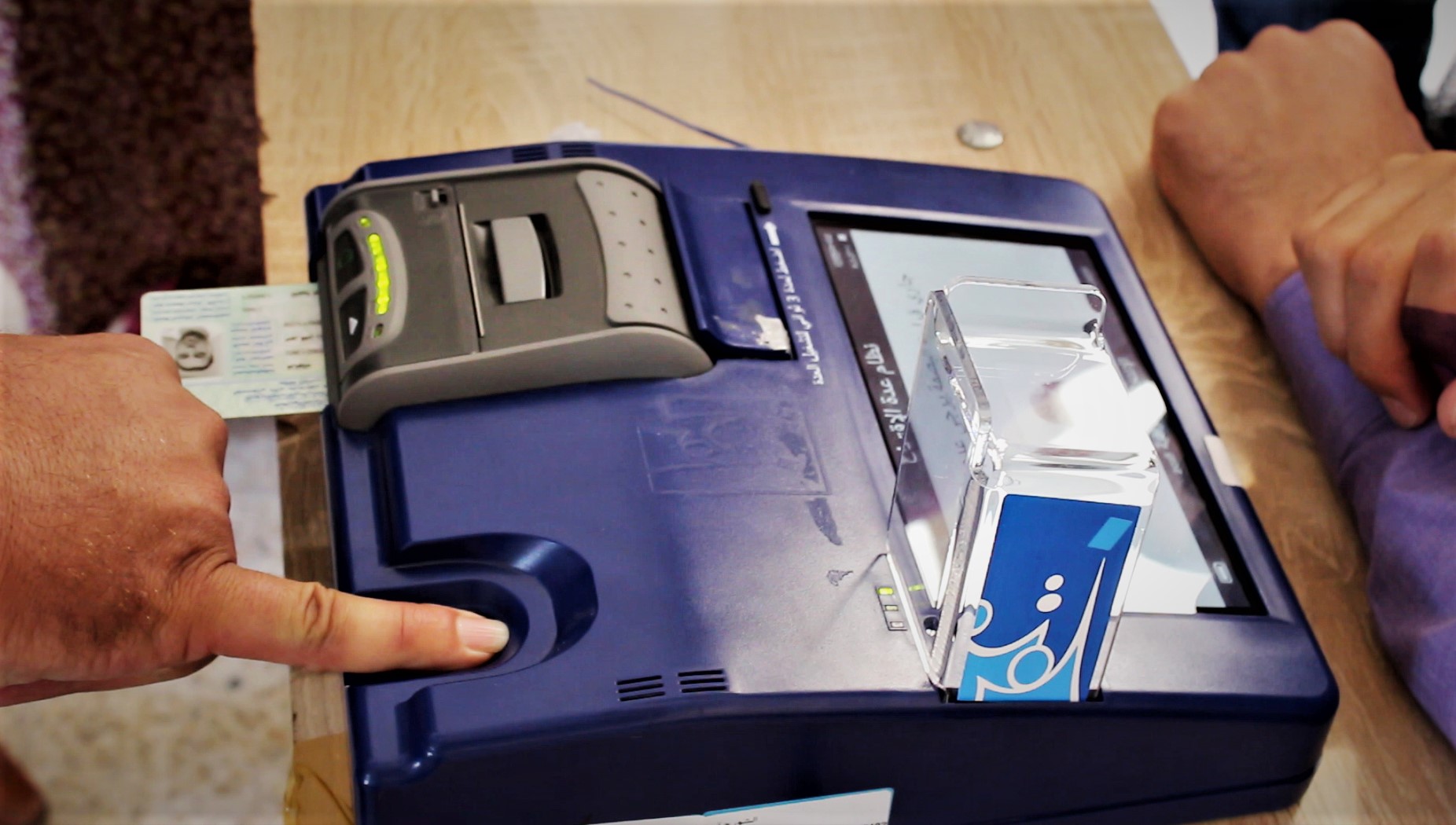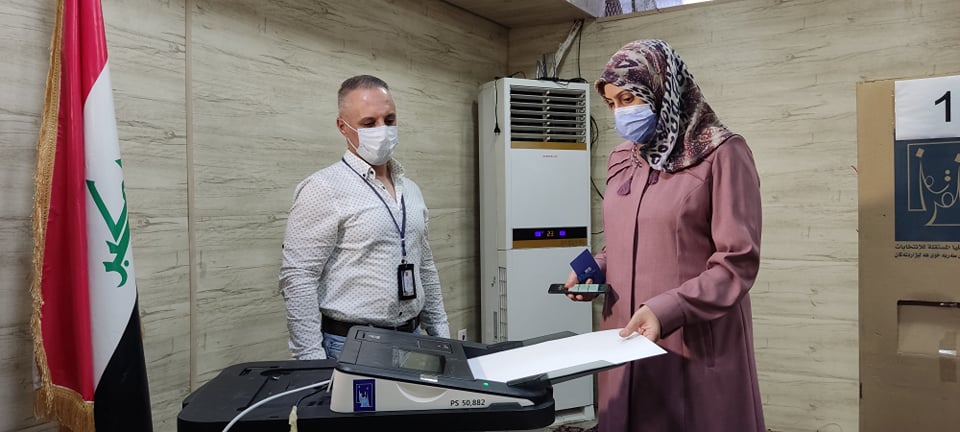Iraqi voters have the right to vote in favor of parliamentary candidates representing religious minorities named quota seats with diverse ethnic, sectarian and religious backgrounds all over Iraq as one electoral district though the new law dictates multi electoral district, the Independent High Electoral Commission IHEC said.
The ethnic and sectarian communities in Iraq have 67 candidates competing for the nine seats out of 329 seats of House of Representatives for the parliamentary elections due October 10th.
Jumana al-Ghalai, spokesperson for the IHEC told KirkukNow Iraq is one electoral district for the Christians and Sabean Mandean meaning "any voter, Christian or not, in any Iraqi province has the right to vote for any Christian or Sabena candidate."
The Christian community has the right to vote for 34 candidates competing to win five seats in the provinces of Baghdad, Erbil, Kirkuk, Ninewa and Duhok while eight candidates compete for one seat allocated for the Sabeans in Baghdad.
The new electoral law ratified last November, a key demand of demonstrators in 2019, changed each of the country’s 18 provinces into total 83 electoral districts in order to prevent parties from running on unified lists, which has in the past helped them easily take all the seats in a specific province. Instead, the seats would go to whoever gets the most votes in the electoral districts.
The 329-member house of representatives was elected in May 2018. The vote is held every four years, but 2019 protesters have been demanding early elections.
Out of 40 million population, 25 million eligible voters run to the ballots on October 10th to elect only 329 members into Iraqi parliament out of 3,234 nominees.

Kirkuk, 2018- A biometric ballot machine has been used in last parliamentary elections. KirkukNow
The IHEC spokesperson said all voters have the right to vote for candidates racing to quota seats. "For example, a Kurd or Arab Muslim or any one from any sect or ethnicity has the right to vote for a quota candidate and it will be counted for."
The single quota seat for the Ezidi community is in the province of Ninewa which is considered as one electoral district for the Eizids meaning all voters all over Ninewa province are eligible to vote for the seven Ezidi nominees competing for the single seat.
Ezidis are an ethno-religious minority over half a million people, mostly residing in Shingal district of Ninewa province. The militants of ISIS in 2014 attacked their communities, killing thousands of men and taking thousands of women and children, in an atrocity the U.N. said amounted to genocide.
The same if applicable for the single seat allocated for the Shabak in Ninewa for which eight nominees have been registered by the IHEC.
The Shabaks in Iraq are estimated be about 300,000 or 350,000 people. 60% of them follow the Shi’a sect, while the rest are Sunnis. The community is scattered in the regions of Bashiqa, Bartella, Hamdaniya, Tilkef, a number of neighborhoods of Mosul and some villages of the Nineveh Plain.
The Faili, Shiite, Kurds in Wasit province have 10 candidates for one seat.
"We rely on biometric voting cards in October elections because cards used in previous elections has been rejected and disposed," Ghallai added.
The biometric voter card shows a photo of the voter and all his relevant data through a chip and fingerprint is used as a double check security procedure.





